
Announcements

Announcements
Poland lies in Central Europe and stands 9th among the largest European countries. For those who aspire to study overseas, Poland has some of the best universities in the world. Due to this reason, it is becoming a prevalent destination among international students.
Every year, 65000+ overseas students get admission to Poland’s universities. The culture, faculty, grandeur, and the entire education system at these universities offer students a lifetime of experience. Besides, at the top universities in Poland, international students can incur low costs of living and studying and also get a good return on investment. So, if you’re planning to study in Poland, it is time to integrate into Polish academic and social life, as you will be one of many international students.
Before applying and getting admission to the top universities of Poland, you must read the study in Poland for international students requirements in the following sections. Begin with checking out the key highlights to get a basic idea about Poland.
| Particulars | Highlights |
|---|---|
| Capital City | Warsaw |
| Currency | Zloty |
| First Official language | Polish |
| Second Official language | English |
| Number of Universitie | 500+ |
| Intakes |
|
Among the study in Poland for international students requirements, knowing about the cost of studying is crucial. There are both private and public universities in Poland and the tuition fees at each university vary with the courses. While there is no tuition fee for local students opting to study in Public universities, international students have to pay an affordable amount.
| Courses | Tuition Fee in Poland | Cost in INR |
|---|---|---|
| Bachelors Courses | €500 - €6,000 | 51756.50 - 621078.00 |
| Masters Courses | €1,000 - €8,000 | 103513.00 - 828104.00 |
| PhD | €2,000 - €6,000 | 207026.00 - 621078.00 |
| MBA in Medicine | €8000 - €12000 | 828104.00 - 1242156.00 |
| Language and Foundation courses | €2,000 - €2,400 | 207026.00 - 248431.20 |
| Vocational Studies | €3,000 | 310539.00 |
Find the right path with Meridean
The next, among study in Poland for international students requirements, is the list of the top universities. The Polish universities are renowned for being among the best academic institutions in the world, owing to their high-quality educational standards. Here is a list of top universities in Poland, their QS world rankings, and the world rankings.
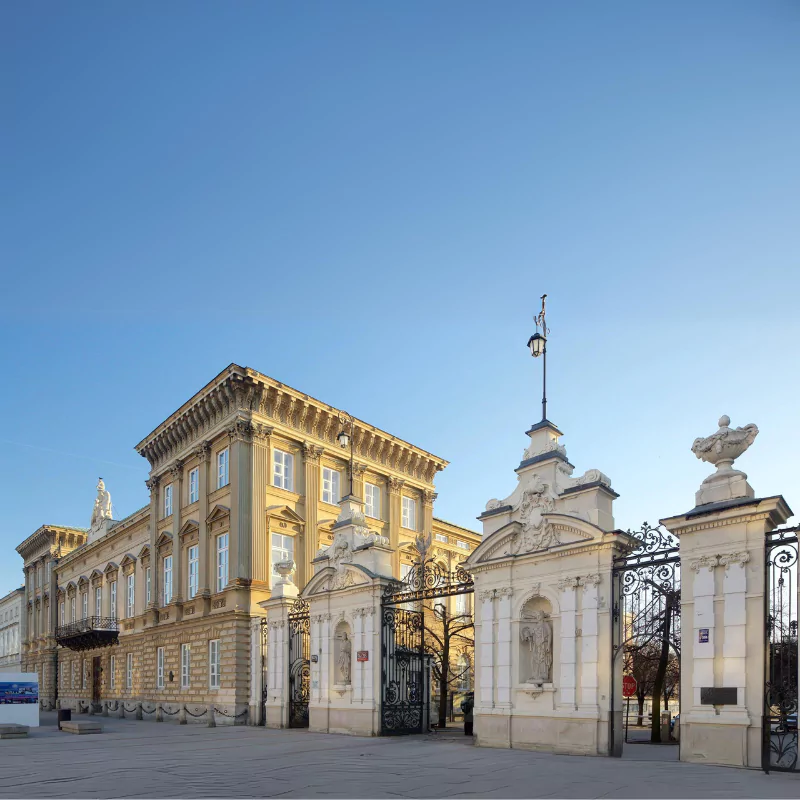
#258
QS World Ranking
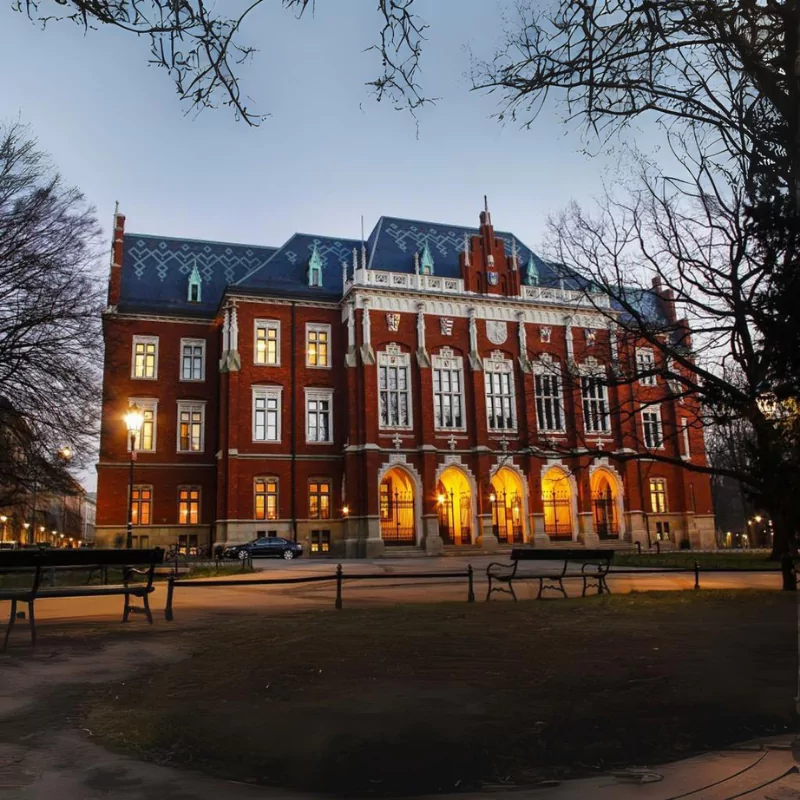
#312
QS World Ranking

#761 - #770
QS World Ranking
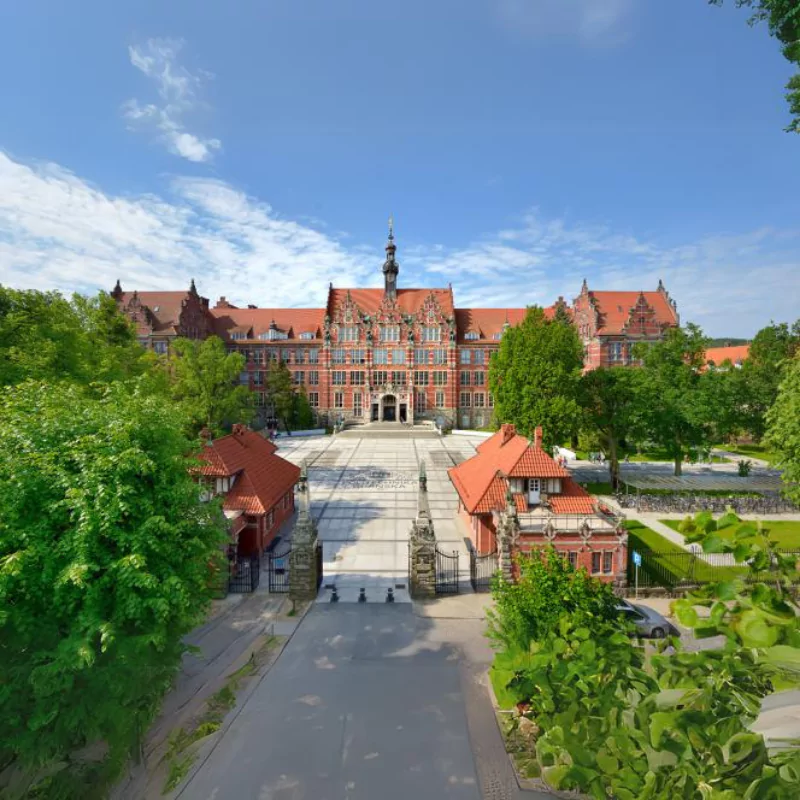
#851 - #900
QS World Ranking
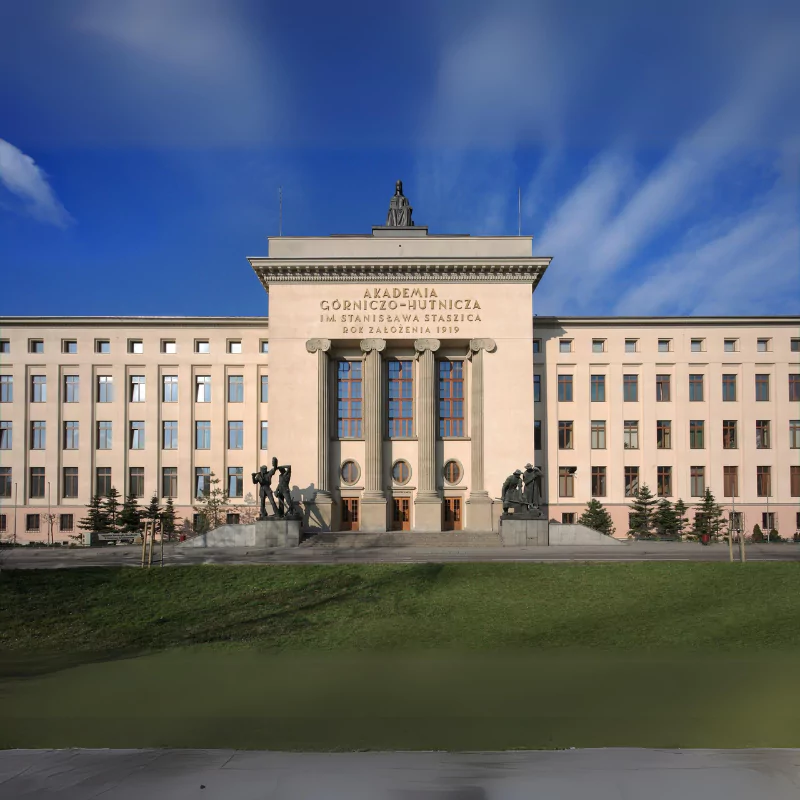
#851 - #900
QS World Ranking
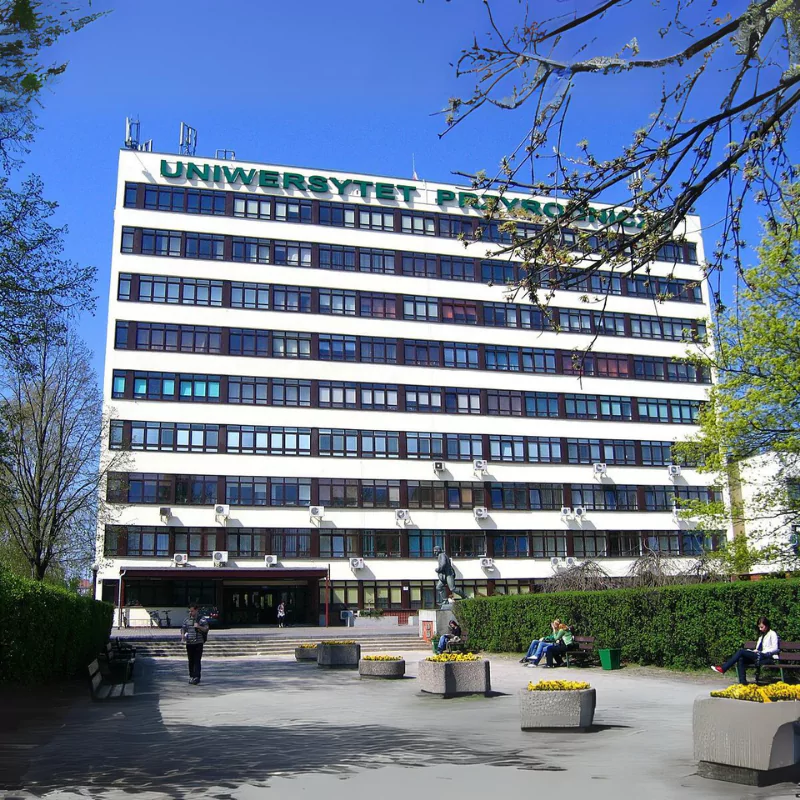
#851 - #900
QS World Ranking

#851 - #900
QS World Ranking
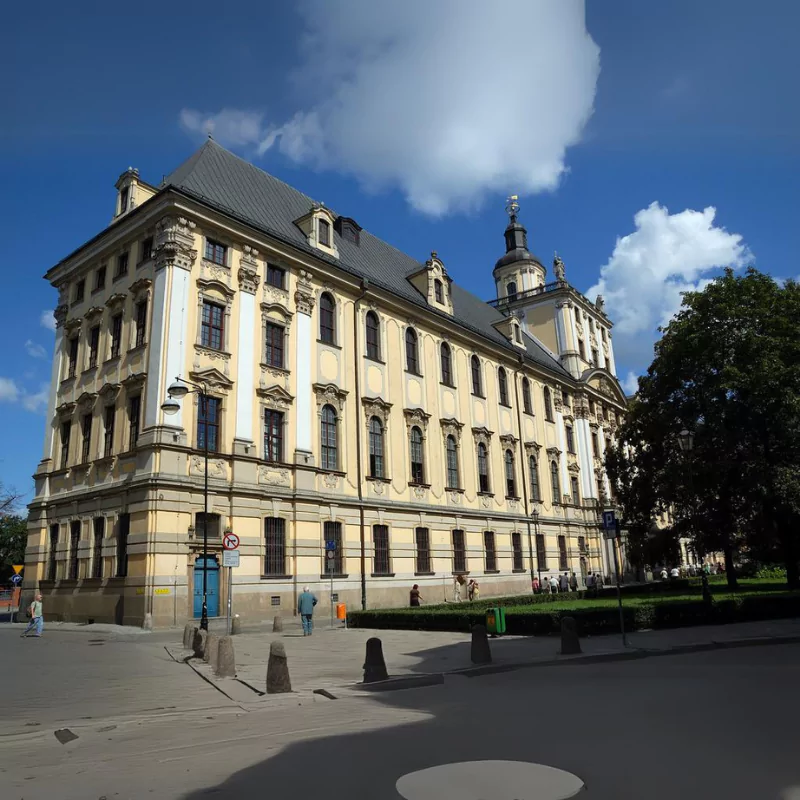
#851 - #900
QS World Ranking
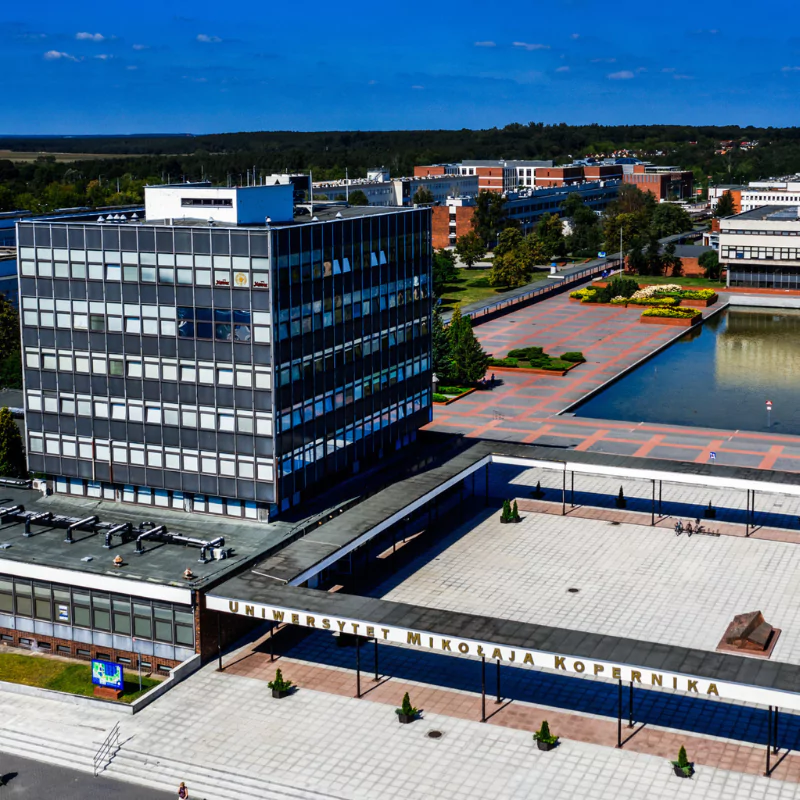
#901 - #950
QS World Ranking
To study in Poland, you must mandatorily provide the following documents at the time of applying to a university.
‘When to study’ is also important among the study in Poland for international students requirements. There are two major intakes, during which international students can apply to their preferred universities - The Winter intake and the Summer intake. Their choice depends on the intake in which there are more courses available and their preferred university is participating. Not all universities participate in both seasons. While most courses are available for the Winter intake, only a few courses are open for the Summer one.
To apply to the preferred Polish universities, international students must be aware of the deadlines for each intake. The details of both the intakes are given below.
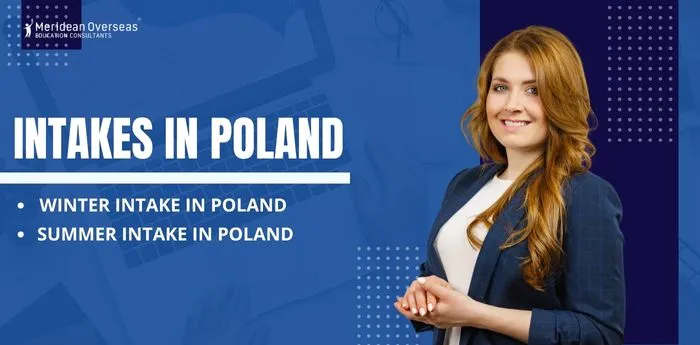
If you are planning to study in Poland, learn about its major programmes, including undergraduate, graduate, and doctoral degrees in various disciplines. From humanities to sciences, engineering, medicine, and business, you may discover a program that matches your interests and professional ambitions.
Undergraduate programmes in Poland typically run for 3 to 4 years, with numerous alternatives for master's and PhD studies. The country also has a robust vocational education system, providing technical and vocational training. These courses prepare students for specialised occupations and frequently include practical training.
The top courses to study in Poland include:
Medicine
Accounting and Finance
Business and Management
Engineering
Environmental Sciences
Art and Design
IT and Computer Science
Automation and Control
Law
Connect With Meridean & Get Your Abroad Education Dream Fulfilled
If you are planning to study at a Polish university and are interested in any English-language program, then you must produce documents proving your language proficiency skills. It is one of the vital study in Poland for international students requirements. Here, students must take an approved English Language test before enrolling in a Polish university.
Here are the details of 3 main English proficiency tests, that students are required to take before applying for the top universities.
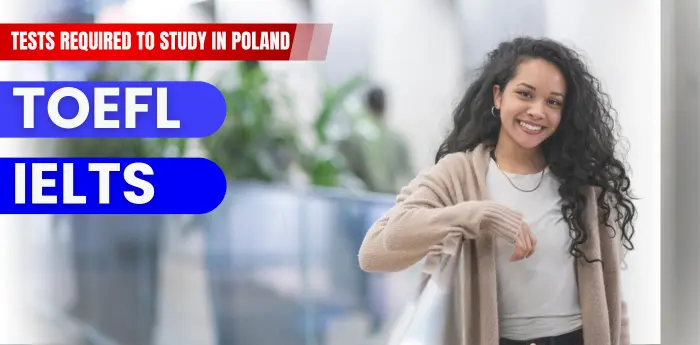
International students, planning to study in Poland are required to apply for a student visa and legalise their stay. This is one of the crucial study in Poland for international students requirements. They must get a visa from their home country and a Temporary Stay Card, which is valid for 45 days before their visa expires. This helps to extend their stay in the country.
Different visa options are available for international students who want to study in Poland.
The most important thing for a student is to get reliable funds to study in Poland. This is only possible when you plan well and apply for potential scholarships available. You can find a whole pool of good scholarships so that you can choose according to your needs.
One of the biggest obstacles while you plan to study abroad is finances. However, Poland provides the best financial aid and opens doors to promising career opportunities. Here is a list of scholarships available to study in Poland.
| Scholarship Name | Award |
|---|---|
| The University of Warsaw social scholarship |
|
| Jagiellonian University scholarship |
|
| Ulam International Program |
|
| Government of Poland Lukasiewicz |
|
| Visegrad Poland scholarship |
|
| Lazarski University Foundation scholarshi |
|
| Maria Curie-Sklodowska University scholarship UMCS |
|
| SWPS scholarship |
|

I applied visa for Australia through this website . Mr. Prashant &Mr. Prakash made the job hastle free for me. They were friendly, helpful & available all the time .My work is done in a smooth way & I highly recommend them. Moreover, you can book the free counselling session with them that give you the proper guidance to study abroad. I have no complaints and I am very grateful for the support 🙏

Meridean Overseas is best in Ahmedabad. Prashant Sir is very supportive and gives his best efforts for every applicant’s visa process. They have very good coordination with universities in Australia. I got Australia Dependant Visa today, so very happy for this and very thankful to Prashant Sir from Meridean Overseas, his work is best. I am extremely happy with the Meridean Overseas Education, Ahmedabad.

I would like to thank you very much for your time and support during my visa adjustment process and for helping me to obtain the desired outcome. I am also very thankful for your help in preparing me for the university interview which made the approval of my visa adjustment very successful. Best institute in India if you want to study abroad. I am personally thankful for SOMYAA KHANGAROT ma’am. She is very supportive and also motivates the students. Again thank you so much MERIDIAN Overseas and their team. ❤️💕

Vineeta, the stellar counselor at Meridean Overseas, made my study visa journey for New Zealand overseas education hassle-free. Actually i didn't put my file in merdian, but I put in another consultancy, they are not gave such support. Also, I am wroking person. One day I see Video in Instagram and contact to Meridian Overseas. about my visas queries and my visa slots. So they always help me in without any fees. On that day my consultancy didn't call me for the slot opening. But Merdian team call me for the slots and because of that I booked my slots.
So I Appreciate their work and Also, I recommend to my family member and friends.

First of all i would say full team of Meridean Overseas is very hard working generous and supporting people and my consultant Mr. Shubhang is very honest and very supportive person and while in the meeting. He told me each and everything clearly and nicely. I was really very impressed and got so many information during the meeting. And you all won't believe the meeting was absolutely free . You can also go and meet the team They are very friendly and clean as glass. If you are willing to go to abroad please consider them and give them a chance to consult you.

I had a wonderful experience with Meridean Overseas. My counselor's name is Miss Tanya Soni. She was incredibly helpful in every aspect, her guidance helped me a lot in understanding my process and solving my problems with the best possible solutions. I am very interested in studying in Poland, and Tanya ma'am helped me significantly, because of her guidance, my dream has come true. I'm very grateful for choosing a counselor from Meridean Overseas.

So far, my experience with Meridean Overseas has been truly remarkable. The experts at Meridean Overseas possess impressive knowledge and demonstrate a strong commitment to providing friendly service to their clients. My process consultant Miss Rashi, stands out with her profound understanding and consistent helpfulness. She is adaptive and ensures the completion of tasks in a timely manner. The team responds promptly to queries, and I am genuinely satisfied with the assistance received thus far. I have high expectations that the remainder of my visa application process will be handled with the same level of professionalism and efficiency.
Thank you, Meridean Team.

My experience with MOEC has been great. I would recommend MOEC for students who wants to pursue their further studies in abroad as their staff is extremely helpful and suggests the best. My counsellor has been really supportive throughout the entire process, from course selection to till visa approval. She always clarified my doubts and helped me in every single way possible and I highly appreciate it.
Ans. Poland ranked 86th in the world's most expensive countries, while India secured 191st place on the list. So, India is cheaper than Poland. But if you are planning to study abroad, Poland is a good choice as it is less expensive than the USA, UK, and Australia.
Ans. According to the stats shared by Rapid Upward Trend, 2987 Indian students are studying in Poland, of which almost 849 are from previous years.
Ans. Poland is counted as one of the fastest-growing countries in the world. It provides various job opportunities in different sectors with lots of benefits. Also, the cost of living is low compared to other countries.
Ans. According to Polish government regulations, students must apply for a residence permit to extend their stay for a PR.
Ans. Poland has a rapidly rising economy with several career opportunities for foreigners. Relocating to this country may give you a lot of benefits, including cheaper living expenses and access to high-quality medical care.
Ans. International students can profit significantly from studying in Poland. Aside from superb institutions and excellent professional opportunities, Poland has a substantially lower cost of living than many other European nations, making it ideal for students on a limited budget.
Ans. The majority of degree programmes in Poland are taught in Polish. As a result, international students are typically required to demonstrate competency in Polish to receive admission. However, an increasing number of English-taught programmes are accessible, notably at the master's level, for overseas students.
Ans. Poland is typically regarded as a safe country for overseas students. The country's crime rate is low, and colleges take precautions to protect their students' safety and well-being. It is always advisable for students to practise basic safety precautions and become acquainted with local regulations and emergency contact information.
Ans. International students from non-European Union (EU) nations must get a student visa to study in Poland. The visa criteria and application process may differ depending on the student's native country. Students must present proof of acceptance from a Polish university, financial resources to meet living expenses, and health insurance. Students should contact the Polish embassy or consulate in their home country for more information on visa requirements.
Ans. International students studying in Poland can work part-time while continuing their studies. They can work up to 20 hours per week during the academic year and full-time during breaks. This programme allows students to obtain excellent work experience, fund their living expenses, and interact with the local community.
Contact MOEC Experts for Study Abroad Guidance!
